

IF Vertigo Games and PC Games bring The Perils of Man, an adventure that was originally born on mobile devices and manages to land on the computer now, which is like the genre fans know the platform of choice for this type of games by the long tradition and, over the years, it has strengthened its position, even though relatively few titles out of this type. No less interesting that gender actually takes time living a second youth thanks to independent proposals.
The Perils of Man managed to capture the public's attention as its pass through the tablets and that certainly has been one of the main engines that has managed to bring the computer industry. Its casual aesthetic and adventure that takes us to play with mystery, time travel and humor are important cards in your favor. Of course, all that remains relevant even today, but also aspects that perhaps made this an adventure a little rough in some of its approaches.
It is true that it has improved the accessibility of the game thanks to the control of having the pointer and greater accuracy on the shares, and includes various visual enhancements that make the title work, in general, much better on our desktop in our tablet. This has been possible largely thanks to the title was originally made with the Unity engine and, as we know, this allows little traumatic adaptations to other platforms thanks to its versatility. We can assume that programmers have been able to focus more on shaping aspects of the version in mind several major parts.
Maybe that's why it is strange that some of the most misguided and some other errors of the same design have not been solved puzzles using this opportunity, as the community of players already had agreed on several specific aspects of the original version that fell into one of the most frequent errors of this kind: a complete lack of sense of the solutions to its puzzles. There are titles that work best when breaking all logic because they are complete betting absurd humor; this is not the case, although it is a very casual affair. We think this is one of the reasons that makes the times when no choice but to go through a "trial and error" unmitigated and track the screen mousing over the entire surface thereof to search for any element allow interaction not work well. In addition, these classic tricks to artificially lengthen the duration of the games exponentially increasing difficulty make little sense today, even as supposedly retro value. Some will enjoy it, yes, but an adventure you want recruit new players (and not just nostalgic veterans) can not fall into this tactless.
And we must not deceive us: that the veteran players who associate the PC classic adventures many are accustomed to deal with such resources in their approaches playable not mean they are good design choices in their approaches. In fact, they are pretty bad, but we live with it and is a taste in them. But if a fan decides to approach the genre with this title (for his humor, appearance and other elements make it suitable and attractive), which will find a game that is very soon going to be in apparent dead end. The hint system is to help the user, and often does (with nuances, as we shall see), but it would have been more rewarding to get more logical sequence of actions for the player and without aid.
Perils of Man begins with lots of claw: the opening bars of the first chapter with hook and connect quickly with the player. This is one of its great virtues and we think it has enough narrative momentum to encourage the player to overcome those moments that will inevitably stuck. On the other hand, it lacks pace by not incorporating some simple conventions that are dominant today, as to suffice double-click on an output and make the transition directly. It not stands out much when an element is interactive (the cursor changes, but we know that some users prefer some extra visual indicator). This is a very relative issue, because it could be more troublesome on small screens, but the truth is that in a standard-sized monitor we think it is a simple matter of personal preference.
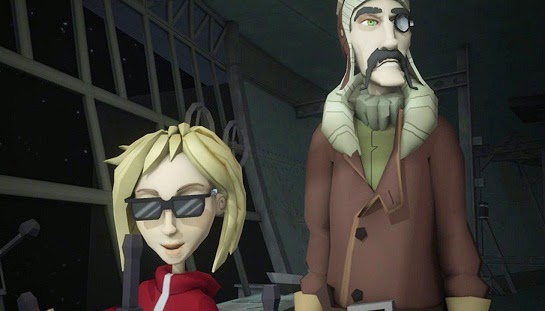
One thing we like about the game is that it loses steam after the first chapter, something that happens to many titles in this genre, although it has obvious ups and downs in his rhythm. As noted above, the title begins with claw and captivates the player with its mysteries and intrigues, telling the historical background leading up to the beginning of the adventure of the young Anne Eberling.
The initial puzzles are good and not too complicated for the player; It not intended as a tutorial but not the user launches the lions. Slowly explore the family mansion, we completed the information that was given to us in the introduction sequence, and everything is prepared for the real adventure to begin. In fact, in these more advanced moments it is when it may be more interesting to bet on a change in perspective and see the scenarios in the first person and can discover important elements and have found it a good gameplay.
It's funny, though, that the first half of the game more solid than the second half, and that, in principle, have had more development time. Tablet version received only the beginning, so now we have the full computer version of the graphic adventure and it is curious that the sensations actually do not improve. It fails to disappoint, although the narrative is consistent (except for the final stretch, which has not seemed to us convincing nor well run, possibly affected by the rush in the creative process) has drawn attention to the quality Playable not go upward.
In fact, its narrative only consistency has some bugs that make something very clear has to be done but the game does not let us do that has not yet been unleashed upon an action or narrative sequence. They are small inconsistencies in the continuity of the story, even when a character has told us what we must do, but we just can not do it because first you have to perform another action, in principle unconnected.
There are a couple of situations of this type during the course of the game. Not a problem perhaps both your playable concept and script sequencing in the implementation, but in this genre both often highly interconnected. Is it sufficient in such cases to use the hint system? Should, but the fact is that in cases where we have untruth, have not served us. In addition, the tracks seem to follow the sequence of rooms, not player actions. Therefore, the tracks change from one room to another and can give us clues to puzzles that have already passed. In short, it is not well made.
On the technical side, we have encountered some problems of synchronization of audio and video (but it is hard to know whether they are generalized or specific question of computer on which we played) and, above all, some errors in the animation sequences they are, in short, absent or have some overlap errors. Nothing to make the title unplayable, but it seems indicative that will be necessary to launch a patch that helps shape all these aspects. We believe that everything has a solution and will question that the developer has the time and the need to solve the technical problems that appear from time to time budget.
Similarly, the game comes only in English and German (audio and text). We believe that an issue with more languages, including -of course- the Spanish would have been good. PC may not take much to add a translation amateur game if officials do not do their job, but in any case it is a shame that you can not enjoy if language is a barrier, especially for touches of humor.
Conclusions
Perils of Man is an adventure game that we like, but objectively it has some drawbacks that the user must consider. Some of the criticisms that we can make the game come relatively late in their development, such as the decline in the quality of the puzzles and feel of a precipitate outcome is not up to the rest of the story we have been telling . It is a pity that the final taste is not as good as the experience we have been enjoying, but the truth is that it is something that can have weight for the player. If we focus on what is important is the way and not the destination, greatly improves perception, but the fact is it costs us ignore their shortcomings in the second half after a very promising start. This creates a bittersweet, but we think its pros may be sufficient for players who crave new graphic adventures, including those concerning the construction of its puzzles. What happens is that this only serves to increase the feeling that this is not a game for everyone and that user can quench the thirst, but also leave you with some dissatisfaction with their buts.

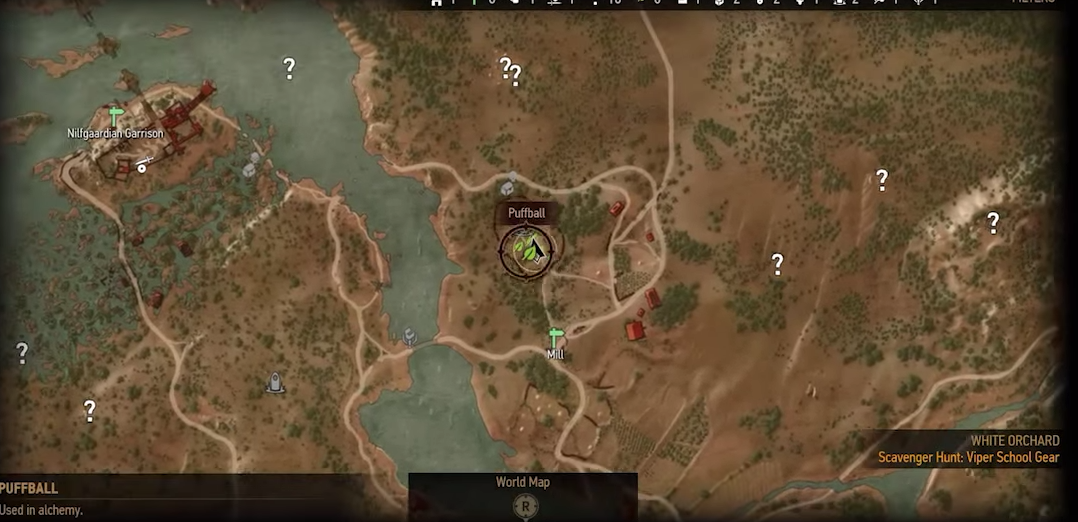


 Bloodborne: The Old Hunters - How to Get the Full Constable Armor Set
Bloodborne: The Old Hunters - How to Get the Full Constable Armor Set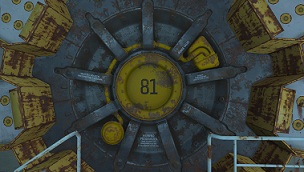 Fallout 4: Cure / Avoid Mole Rat Disease - tips
Fallout 4: Cure / Avoid Mole Rat Disease - tips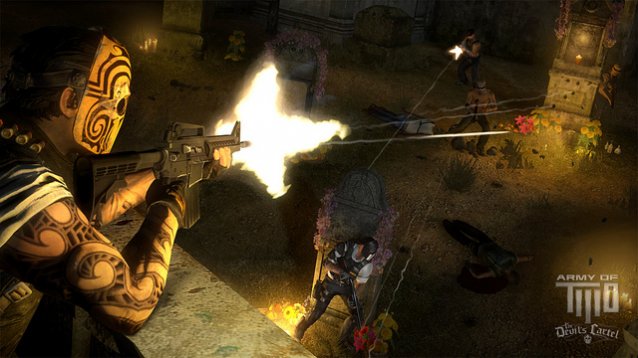 Army Of Two: The Devils Cartel Hands On: The Bromance Is Over
Army Of Two: The Devils Cartel Hands On: The Bromance Is Over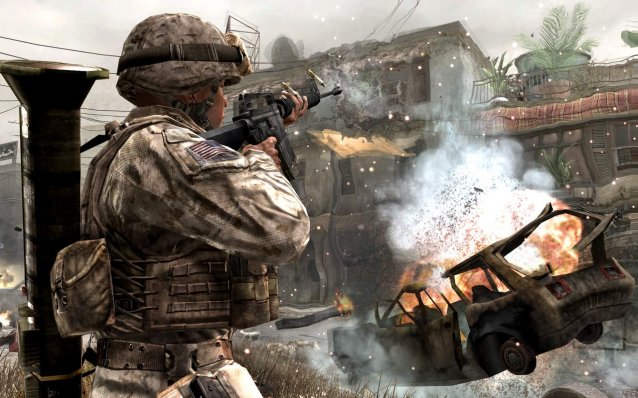 3 Reasons Why War Is A Bad Topic For Video Games
3 Reasons Why War Is A Bad Topic For Video Games WWE 2K16: Tips for new reversal / counter attack system
WWE 2K16: Tips for new reversal / counter attack system